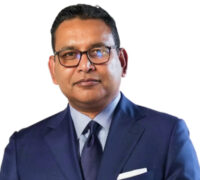Learn (in three ways)
Learning starts with a conscious act to understand yourself as a leader. You have to learn who you are as a person and decide what kind of leader you want to be, because every organization is a reflection of its leader.
Second, you have to educate yourself about what’s going on in the outside world, including technological change, social change, and geopolitical shifts, to understand the perspective of others.
The third part of learning is to understand the organization itself. A good leader is completely attuned to the psychology of the organization and how it relates to the world around it.
Investigate
You have to do extensive research before you can begin development. For example, to create a unique value proposition, you have to know where you can add value. This value-driven approach depends on research. You also have to understand your current capability: there’s no point trying to do something that the organization is not ready to do or cannot execute.
Formulate
This is about generating a set of ideas for your innovation portfolio. It’s also about identifying and distributing risk, so that if one idea doesn’t work you utilize another one. Collaboration is key here: any innovation in today’s marketplace is highly cross-disciplinary and requires cross-collaboration.
Take-off
Take-off comes from execution. This relates to outliers: out of a series of innovations, one or two will be outliers. You need to focus on these in a way that allows you to create real value (take-off). You therefore have to create two streams of revenue: short-term and long-term (or sustainable) revenue, because you’re not going to be around to create long-term revenue if you cannot generate enough today.
Study
In business, 90% of innovations fail. That means you have to craft a series of ideas and test them to see whether they work. Transformation starts with studying where you are now in relation to your customer base and the outside world to identify options.





